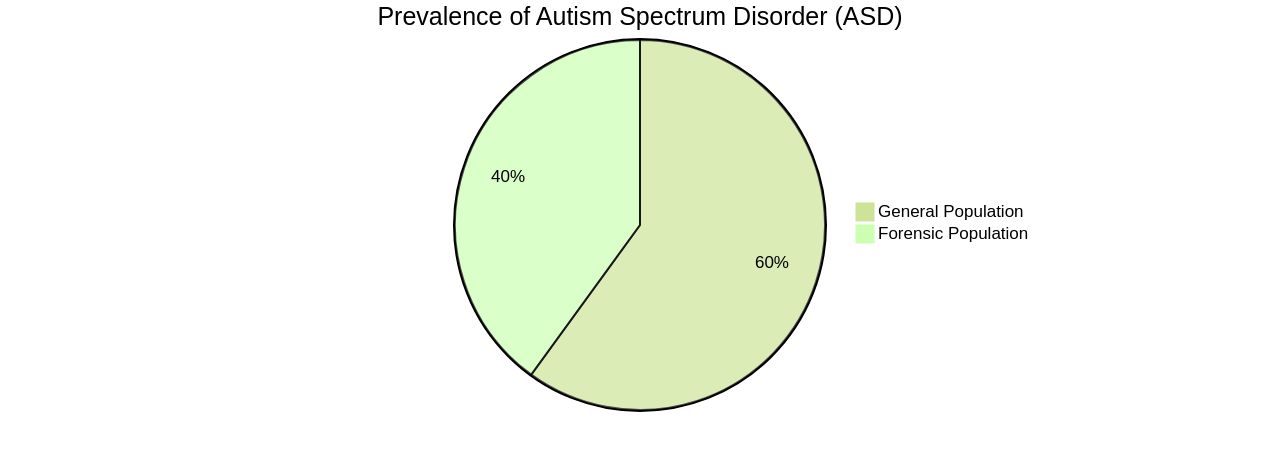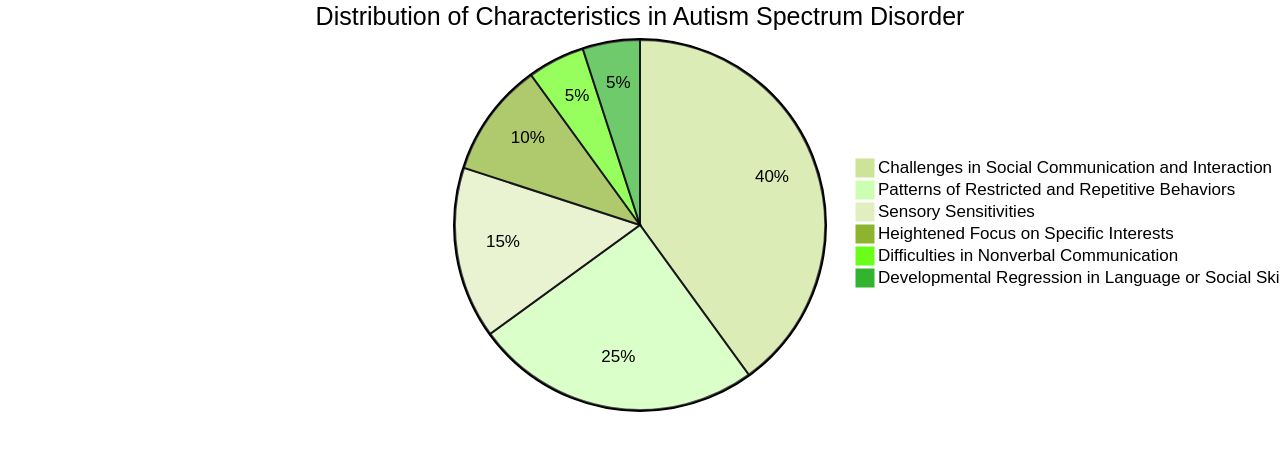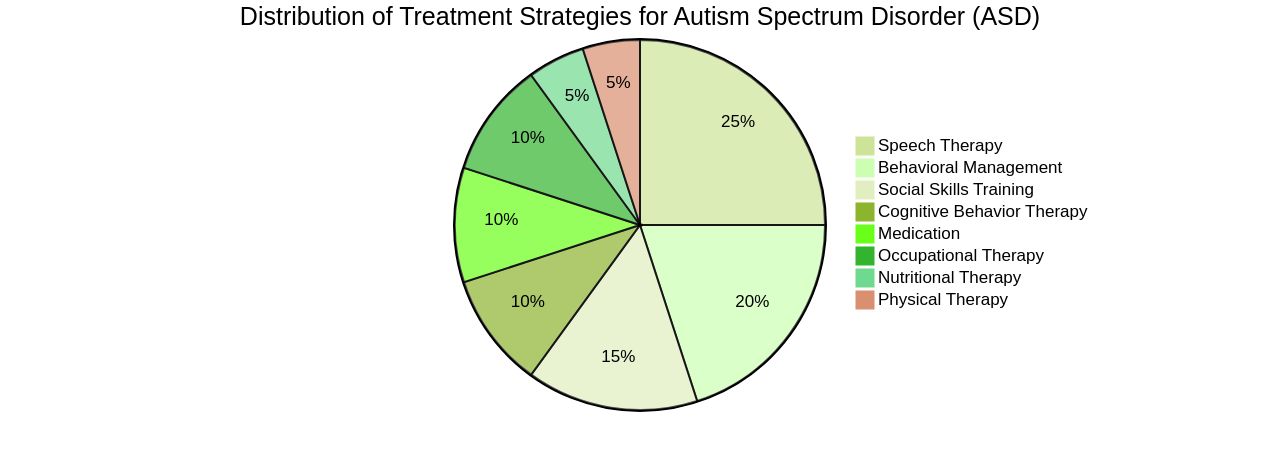Introduction
Asperger's, a subset of the autism spectrum, presents unique challenges for individuals and their families. In this article, we will explore the characteristics, diagnosis, treatment, and support available for those affected by Asperger's Disease. With a focus on empowering Parent Advocates, we will provide guidance and resources to help navigate these challenges and ensure the well-being of their children.
What is Asperger's Disease?
Asperger's, a subset of the autism spectrum, was initially identified by Austrian pediatrician Hans Asperger in the 1940s. It's distinguished by social interaction challenges, repetitive behavior, and a robust interest in particular subjects.
However, the prevalence of Asperger's is higher in certain environments than in the general population, with studies noting a 1.5% prevalence in particular forensic populations. Autism spectrum disorder (ASD), which includes Asperger's, is a complex condition that presents unique challenges for research.
It's now present in 1 in 36 children, a significant increase from 1 in 44 just two years ago. The neurological nature of ASD, combined with the diversity of symptoms and severity, makes it a challenging area of study.
Despite the challenges, it's essential to debunk common myths about ASD. For instance, the spectrum does not affect all individuals in the same way.
Some may excel in areas such as math, history, or speech, while others might struggle in these subjects or even be nonverbal. The term 'Asperger's' is increasingly being phased out in some circles due to its historical associations, with some preferring to use alternative terms. However, many individuals previously diagnosed with Asperger's continue to use the term due to its familiarity. Notable figures such as Elon Musk and David Byrne have self-identified as having forms of Asperger's, showcasing the diversity of experiences within the spectrum. However, it's crucial not to conflate different conditions within the spectrum, as each requires a unique approach for diagnosis and management.

Clinical Characteristics of Asperger's Disease
Individuals on the autism spectrum, previously referred to as having Asperger's Syndrome, are known to exhibit certain distinct characteristics. These may include challenges in social communication and interaction, patterns of restricted and repetitive behaviors, as well as sensory sensitivities.
This group of individuals may also display a heightened focus on specific interests and face difficulties in nonverbal communication. However, it's important to note that the use of the term 'Asperger's Syndrome' has been discontinued in many professional fields due to the historical implications associated with the term.
Despite this, some individuals who were previously diagnosed under this term may still prefer to use it for reasons of familiarity and clarity. The prevalence of autism spectrum disorder (ASD) has seen a significant increase in the past two decades due to factors such as increased public awareness and more accurate diagnostic criteria. According to the American Academy of Pediatrics, a quarter of children with ASD may show signs of developmental regression in language or social skills. However, it's crucial to note that such regression is unlikely to be linked to an underlying neurodegenerative cause, and the need for brain imaging should be determined based on clinical history and examination.

Diagnosis and Assessment of Asperger's Disease
Identifying Autism Spectrum Disorder (ASD) necessitates a thorough evaluation process that takes into account numerous elements such as the individual's developmental history, behavioral observations, and standardized assessments. Professionals like psychologists and psychiatrists assess the individual's social skills, language capabilities, sensory sensitivities, and repetitive behaviors to determine if they meet the diagnostic criteria for ASD. This process, however, is not without its challenges.
The heterogeneity of ASD, with its diverse symptoms, cognitive profiles, and underlying genetic factors, adds to the complexity of establishing universally applicable biomarkers. Variability in neuroimaging data acquisition and processing also complicates the issue. However, standardization of these protocols can enhance comparability of results across different studies.
Furthermore, it's essential to note that the term 'Asperger’s syndrome' is no longer in use due to its historical implications and overlapping features with ASD. Many individuals who were previously diagnosed under this term may still prefer it for reasons of familiarity and clarity, yet it's crucial to understand that it is now categorized under ASD. The identification process also involves understanding how issues manifest across settings and assessing for co-occurring conditions like anxiety or attention-deficit/hyperactivity disorder (ADHD).
Treatment and Management of Asperger's Disease
Autism Spectrum Disorder (ASD) is a broad condition with a wide array of challenges and strengths unique to each individual. This spectrum nature implies that the ways in which people with ASD learn, think, and problem-solve can range from highly skilled to severely challenged.
Some individuals require substantial support in their daily lives, while others need less assistance and may even live independently. ASD treatments aim to alleviate symptoms impacting daily activities and overall quality of life.
Early diagnosis and intervention have been proven to have long-term effects in minimizing symptoms. ASD treatment may include a combination of therapies like speech, social skills training, behavioral management, cognitive behavior, medication, nutritional, occupational, and physical therapy.
Despite the absence of a cure for this condition, there are various treatment and management strategies that can help individuals with ASD to thrive and reach their full potential. Support from family, friends, and community is crucial in creating an inclusive and supportive environment for individuals with ASD.
Moreover, it's important to dispel common myths and misconceptions about ASD. For instance, ASD does not affect all individuals in the same way. People with autism have different challenges and strengths. Lastly, it's essential to remember that the success stories of individuals like Elon Musk and David Byrne, who believe they have a form of Asperger's, demonstrate that individuals with ASD can lead successful lives. The condition, in its various forms and degrees, does not define the potential or worth of an individual.

Support for Individuals with Asperger's Disease and Their Families
Living with Asperger's syndrome, a condition on the autism spectrum, presents a distinct set of challenges for both the individuals affected and their families. The key to navigating these challenges lies in the strength and breadth of the support network that can be built around them.
Resources such as the National Autistic Society's Autism Accreditation program, established in 1992, have helped improve the support available for autistic individuals, with over 500 organizations globally now accredited. This network includes a diverse range of services like adult services, schools, short break services, and more.
It's an assurance of excellence and a testament to a commitment to continuous development. The U.S. Department of Health and Human Services, in its 2022 report, emphasized the significance of supportive services, such as occupational, behavioral, and speech therapies, all of which can be accessed through Medicaid, private insurance, or self-pay.
In addition to these, mental health services are crucial and can be found in various facilities dedicated to mental health issues or substance abuse. For veterans and their families dealing with post-traumatic stress disorder (PTSD) or depression, specific services are also available. It is important to remember the role of resilience and wellbeing, as emphasized by BeyondAutism. The journey of living with Asperger's is not an easy one, but with the right support, it can be a journey of growth and empowerment.

Conclusion
In conclusion, Asperger's Disease presents unique challenges for individuals and their families. Understanding that ASD affects individuals differently is crucial, and while the term "Asperger's" may be phased out, many still prefer to use it. The clinical characteristics of Asperger's Disease include social communication challenges, repetitive behaviors, sensory sensitivities, and difficulties in nonverbal communication.
Diagnosing ASD is complex due to its heterogeneity. Treatment strategies aim to alleviate symptoms and improve daily life. Early intervention is crucial.
Various therapies, medication, and support from family and the community contribute to an inclusive environment. Living with Asperger's requires a strong support network. Resources like the Autism Accreditation program provide excellent services globally.
Accessing therapy and mental health services is essential for well-being. In conclusion, individuals with ASD can lead successful lives. Parent Advocates can empower themselves by navigating challenges and ensuring their children's well-being on the autism spectrum.




